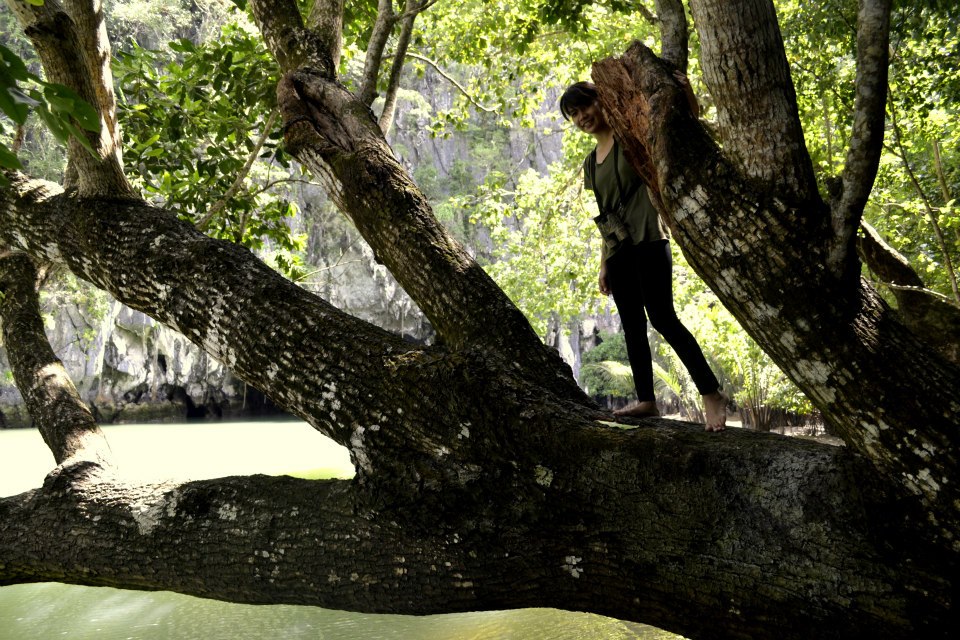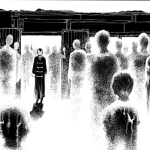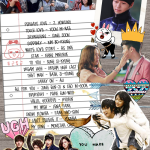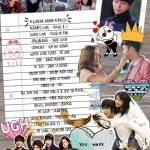
Earth Day Special: 10 Simple Habits to be Pro-Environment
Yesterday, the whole world pronounced “Happy Earth Day!” Many shared their Earth Day photos and activities in social media to inspire others and remind us to do our part.
This would be my part – to share simple habits that could make a difference for the environment. Though this seems to be a day late, remember that, “everyday is earth day!”
1. Throw trash to designated bins
Many Filipinos, usually those confined in the Metro and nearby provinces, still throw trash anywhere despite constant reminders of proper disposal. Is it a cultural thing? A case of collective indolence? Whatever it is, it seems that the first step to environmental awareness in the country is to change this habit.
Say you’re cultivating the habit of proper garbage disposal. Take it up a notch by distinguishing between biodegradable and non-biodegradable or more precisely, recyclables, food waste, paper, and chemical. Segregation at the lowest level could go a long way if everyone starts doing it.
2. Conserve water and energy
I can’t remember the last time I drank from the faucet. It has always been from big blue containers of water refilling stations. I don’t think it would get better in time; we’re talking about a natural resource after all.
The same goes with energy. Yes, you pay for your electric consumption, but it doesn’t mean you get even by using as much electricity to offset your expenses. Companies don’t own these resources. If they run out, even the richest companies won’t be able to produce clean drinking water or electricity for everyone.
3. Put meaning and action to the 3 R’s
We’ve known the 3 R’s since 3rd grade. But, do we bother to practice them?
Some of the simplest and practical actions under the first R – Reduce or using less resources:
- Carry the item bought instead of having it wrapped in plastic or paper and shop with a reusable bag or basket.
- Prefer dine-in from take-out to reduce plastic and styrofoam.
- Do you really need a straw?
- Do you really need to buy something that you might have or could be borrowed?
- “Do you want a printed receipt?” NO. You’d only crumple it as you take your cash from the ATM.
- Again, reduce use of water, turn off lights when not in use, and unplug appliances.
To reuse simply means finding other ways to use something before discarding or replacing it. For example, using the back of printed paper as scratch, reusing grocery bags, finding new uses for boxes, tin cans, and other packaging, refusing to throw things away because they might be useful to other people, and using products made from post-consumer materials.
Recycle is the third R because you want to completely exhaust all uses of a product before converting it into another product with a different use. Not everything can be recycled, so it’s always better to start with the first R.
You know that your 3 R’s are working if you have less garbage to dispose.
4. Be a wise consumer
I’m sure this slogan is familiar: “buy this, save the environment.” Just because stores call their products “eco-friendly” it doesn’t automatically make them eco-friendly, right?
Ask yourself: In what ways is this eco-friendly? To set your standards when buying products, you can a) look at the product’s composition or ingredients b) verify the products’ sources c) run through your 3 R’s to assess your purchase, and d) do some research on which products are safe for the environment.
This may seem like a lot of work, but if it’s good for the environment, it’s good for you.
5. Love your material things more
Did I read that correctly? Don’t environmentalists live simply? Yes and yes. I’ll make the point in 3 sentences, though this article from Aeon Magazine puts it best.
- You bought a shining new gadget, for example, because you have assessed its capability to deliver its promises and perhaps make your life easier in one way or another.
- You take care of it because even if a new model comes out, you still spent money on it.
- You love it enough not to replace it before it delivers its last use.
If you love your material things more, you wouldn’t find the need to satisfy yourself with unnecessary purchases.
6. Let animals be
Yes, monkeys look hilarious or cute. Snakes seem dangerous. Birds, colorful. And others, simply interesting. All our adjectives fit, but let them be. They have a business of their own – to fulfill roles in the ecology they’re part of. Disturbing, feeding, capturing them or simply coming close to them could disrupt the bigger system humans also depend on. So next time you see a seemingly cuddly animal, just grab your camera and try to appreciate it from afar.
7. Make sensible celebration of environmental events
Some companies who took part in Earth Hour printed posters with their company logo for their PR campaign. A couple of groups I volunteered with at a Coastal Clean-up concluded it with a luncheon of cold meals in styrofoams.
Celebrate environmental events to highlight a specific cause, but don’t forget other causes like saving trees and reducing use of non-recyclable styrofoams. An alternative to the styrofoamed lunch would be a potluck of home-cooked fares to share. It loudly states that we clean our mess, we also make no more.
8. Report environmental crime
Social media makes it easy for us to police environmental crimes – poaching animals, cutting trees, shooting ducks for fun, fishing illegally, and improper dumping of wastes. If you happen by an environmental crime, report it with caution to the nearest authority – DENR, police, environmental groups, media. As Elie Wiesel puts it, “don’t stand idly by.”
9. Learn how to appreciate nature
Watching interesting birds aside from the maya. Photographing breathtaking sunsets. Counting shooting stars while camped on a mountain. Hiking while quietly observing nature. Taking photos of animals. Observing animals and their habits from afar. Swimming in clean bodies of water. Loving the rain that made you stay home. Loving the cool shade of trees. If you appreciate them, you’d be more aware and protective of them.
10. Be conscious
For this, I quote a soft environmental activism documentary, 180 Degrees South: Conquerors of the Useless:
“The hardest thing in the world is to simplify your life…What’s important is leading an examined life
because most of the damage caused by humans is caused unintentionally”
Can you step up to the challenge? What else can you do to be pro-environment?
More From Our Site
Des Cambaliza is a traveler, nature lover, and an entrepreneur who tries to capture in photos how she sees the world.














Tim Llorera
You couldn't have put it any better! What a great read. Most ignore these simple concepts, unaware, these can save their lives, and the environment.
Kimpee Olivar
ganda ng pics
Pingback: From Guest Blogger Kimpy Oliver: Seven Ways Biking Makes You an Eco-Hero | 2GreenEnergy.com
Pingback: 9 Ways to Be an Energy-efficient Homeowner | Manillenials